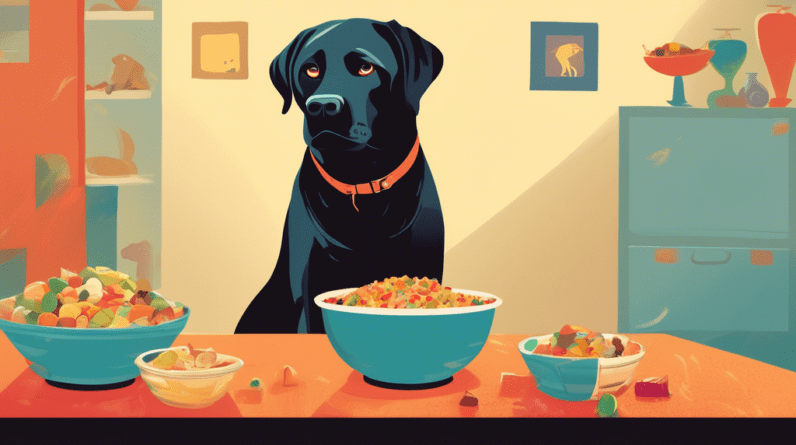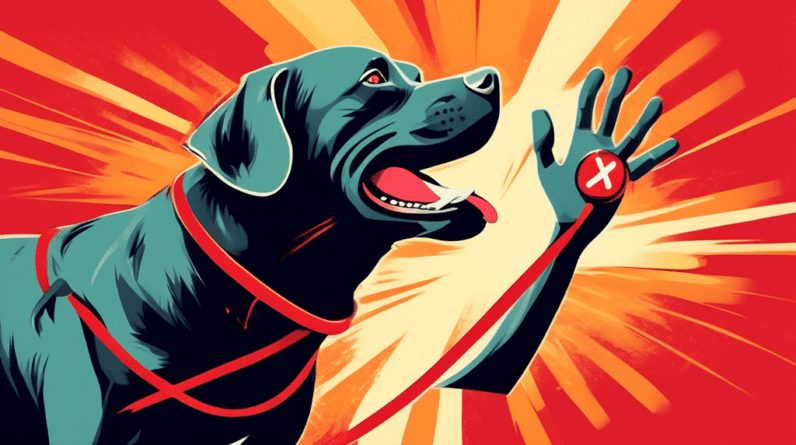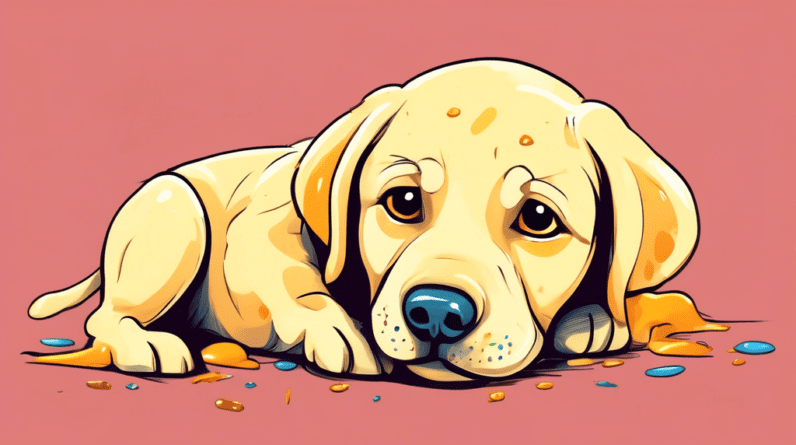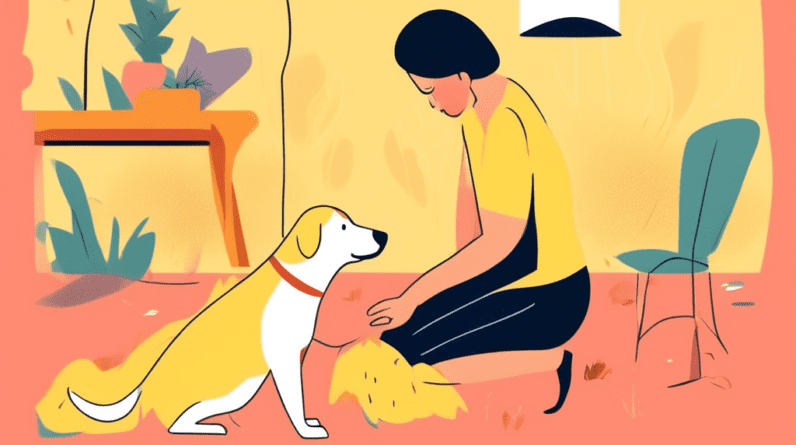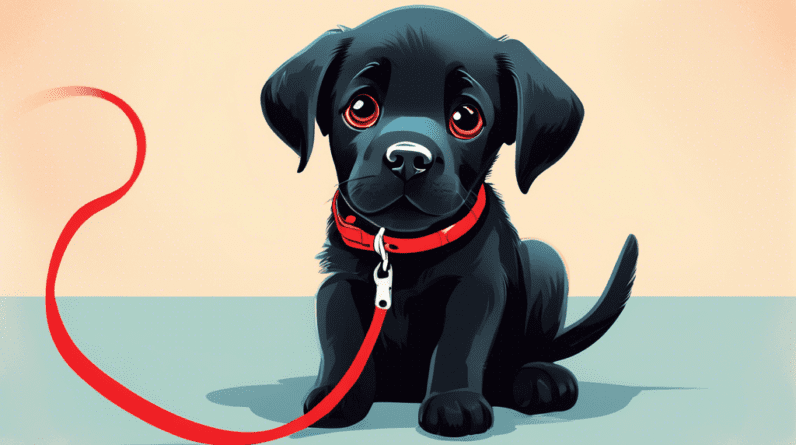
Why Does My Labrador Retriever Whine So Much? Understanding Your Lab’s Communication
Labrador Retrievers are known for their friendly personalities, wagging tails, and, yes, sometimes their whining. While their happy-go-lucky nature is a trademark of the breed, excessive whining can be a frustrating puzzle for Lab owners. But before you write off your Lab’s whimpers as mere complaining, it’s essential to understand that whining is a key form of communication for dogs. This article delves into the common reasons behind your Labrador’s vocalizations, helping you decipher the messages behind the whines and address any underlying issues.
Basic Needs: The Foundation of Canine Communication
Like all living creatures, Labrador Retrievers have basic needs that must be met for their well-being. Whining can often be a direct line to these needs, signaling to you that something requires your attention. Let’s break down the fundamental areas where your Lab might be trying to get your attention:
* **Hunger and Thirst:** This one’s a no-brainer. If your Lab is whining, especially around their usual mealtimes, a rumbling tummy or parched throat might be the culprit. Ensure your Lab has access to fresh water at all times and is fed a balanced diet on a regular schedule.
* **Potty Breaks:** Whining, pacing, and scratching at the door are classic signs that your Lab needs to relieve itself. Establish a consistent potty break routine, especially for puppies who have smaller bladders. Positive reinforcement when they do their business outside goes a long way!
* **Discomfort:** From a tight collar to a too-cold room, Labs may whine to express physical discomfort. Examine their surroundings and ensure their collar fits comfortably (two fingers should fit snugly). Pay attention to potential pain points and consult your vet if you suspect an injury.
* **Loneliness and Boredom:** Labs are social butterflies. They crave interaction and can become anxious or bored when left alone for extended periods. Whining can be their way of calling out for companionship. Providing plenty of mental and physical stimulation through playtime, training, and interactive toys can help alleviate loneliness.
Beyond the Basics: Delving Deeper into Lab-Specific Whining
While addressing basic needs is crucial, Labrador Retrievers often have additional reasons for their vocalizations. Understanding these breed-specific tendencies can help you better interpret your Lab’s language:
* **Excitement and Anticipation:** Labs are notorious for their enthusiasm, and whining can be an outlet for pent-up excitement, especially during enjoyable activities like walks, playtime, or when meeting new people. This type of whining is usually accompanied by a wagging tail and eager body language.
* **Attention-Seeking:** Labs are highly social and thrive on interaction with their human companions. If they feel like they’re not getting enough attention, they might resort to whining as a way to get a pat, a treat, or simply some quality time with their loved ones.
* **Anxiety:** Separation anxiety is a common issue in Labs, causing them to whine, bark, or engage in destructive behavior when left alone. Gradual desensitization training, coupled with strategies to reduce their dependence on your constant presence, can help manage separation-related anxiety.
* **Age-Related Changes:** Senior Labs may whine more frequently due to cognitive decline or discomfort associated with age-related conditions like arthritis. Regular veterinary check-ups and appropriate pain management strategies are essential for senior Labs experiencing discomfort.
Deciphering the Message: Context is Key
Understanding the context surrounding your Lab’s whining is crucial for accurate interpretation. Consider the following factors when analyzing your Lab’s vocalizations:
* **Body Language:** Is the whining accompanied by a wagging tail, relaxed body posture, or playful bows? This suggests excitement or anticipation. Conversely, a tucked tail, lowered head, or trembling might indicate fear, anxiety, or pain.
* **Environment:** Where is your Lab when they whine? Whining at the door likely means they need to go outside, while whining near their food bowl suggests hunger.
* **Timing:** Does the whining occur at specific times of the day, such as mealtimes, bedtime, or when you’re preparing to leave the house? Identifying patterns can offer valuable clues.
Addressing Excessive Whining: Strategies for a Happier Lab
If your Labrador’s whining is excessive or causing concern, it’s essential to address the root cause rather than simply trying to silence them. Here are some effective strategies:
* **Rule Out Medical Conditions:** Schedule a veterinary checkup to eliminate any underlying medical reasons for the whining, especially if it’s a sudden change in behavior or accompanied by other symptoms.
* **Meet Their Basic Needs:** Ensure your Lab’s basic needs for food, water, potty breaks, exercise, and mental stimulation are consistently met. A fulfilled dog is less likely to whine out of frustration or boredom.
* **Positive Reinforcement:** When your Lab is quiet and relaxed, reward them with praise, treats, or gentle petting. This reinforces desirable behavior and encourages them to seek attention in more appropriate ways.
* **Ignore Attention-Seeking Whining:** If you suspect your Lab is whining for attention, avoid giving in. Responding to attention-seeking whining only reinforces the behavior. Instead, wait for a moment of quiet before rewarding them with your attention.
* **Training and Mental Enrichment:** A tired Lab is a well-behaved Lab. Provide ample opportunities for physical exercise and mental stimulation through activities like training sessions, puzzle toys, interactive games, and walks in stimulating environments.
* **Desensitization and Counter-Conditioning:** For anxiety-related whining, consult with a certified professional dog trainer or behaviorist to develop a tailored plan. They can guide you through desensitization and counter-conditioning techniques to help your Lab manage their anxiety and develop coping mechanisms.
Patience, Consistency, and a Deeper Understanding
Remember, changing any ingrained behavior takes time, patience, and consistency. By paying close attention to your Labrador Retriever’s whining, deciphering their unique communication style, and addressing their needs holistically, you can strengthen your bond and create a happier, more harmonious environment for both of you. Understanding the reasons behind your Lab’s vocalizations transforms those whimpers from frustrating noises into valuable insights into the mind of your beloved companion. So, listen closely, observe their body language, and enjoy the journey of building a deeper understanding with your furry best friend.

